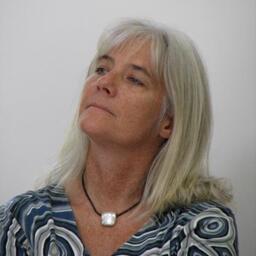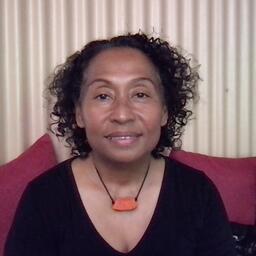Regional Vice Chair, Oceania
Elise’s interests and work are in the areas of culture, conservation and development and the relationships between them in Oceania. She is an Adjunct Associate Professor ...
Oceania
CEESP in Oceania focuses on promoting CEESP’s vision of sustainability, social justice, diversity and equity in conservation and development. In Oceania, an island region where Indigenous peoples constitute majority populations and are strongly connected to place, this means supporting people centered conservation.
Even though conservation policy in Oceania recognizes the importance of “Pacific values, connection to place, and our traditional, indigenous and local knowledge”, as indicated by the Vemööre Declaration: Commitments to nature conservation action in the Pacific Islands region 2021-2025, there is still much to be done to translate this into action. CEESP Oceania aspires to further enhance 1) meaningful participation of and collaboration with local communities, and 2) full acknowledgement of the centrality of traditional knowledge and cultural heritage, in conservation work in the Pacific Islands.
This is urgent particularly in view of the general decline in the status of the environment and conservation in the Pacific Islands. As indicated in the 2020 State of Environment and Conservation in the Pacific Islands Report, even though the status of species is considered “fair”, the trend is “deteriorating”; forests, wetlands and coral cover are declining, and management of invasive species is generally “poor to fair”. Although marine protected areas have increased significantly in a number of countries terrestrial areas protection remains generally poor. Marine pollution, including plastic waste, is a growing critical issue. And the “status of migratory species of concern” is “poor to fair” with the trend deteriorating, with the “population status of three marine migratory species [being] worse in the Pacific than elsewhere in the species’ range: humpback whales, loggerhead turtles and leatherback turtles, all iconic Pacific species” (SOECPI, 2020, p.87). Enhancing conservation and sustainability in Oceania requires the active participation of land and sea owning communities and recognition of their long standing and intimate relationship with the environment.
From 2017 to 2021, CEESP Oceania focused on increasing collaboration with ORO and with the conservation sector including through the Pacific Islands Roundtable on Nature Conservation (PIRT). Outcomes include the establishment of a PIRT Working Group on Nature and Culture which will become active in 2022 and is chaired (by interim) by CEESP and CEESP contribution to the Pacific Islands Framework for Nature Conservation and Protected Areas.
A main aim of CEESP Oceania 2021-2025 will be to further contribute to conservation policy directions in the Pacific Islands building on 2017-2021 outcomes.
Proposed CEESP Oceania areas of priority:
- Increase:
- Pacific Islands membership
- CEESP Oceania contribution to CEESP themes and program priorities (activities and publications)
- Current and future CEESP Oceania members’ participation in international/regional and national conservation events and programming
- Develop tools for Pacific Islands based conservation organizations to:
- work more effectively with local communities and traditional knowledge holders and cultural experts;
- design policies, programs and projects which support the strategic objectives, goals and principles of the Pacific Islands Framework on Nature Conservation and Protected Areas, 2021-2025, in particular those that address community rights, the preservation of natural and cultural heritage and the sustainable use and management of natural resources, in line with CEESP priorities
- Continue to work closely with ORO; lead and contribute actively to the new PIRT Nature/Culture Working Group and promote and support the work of CEESP Oceania members in the other PIRT WGs
To increase CEESP membership, we will be reaching out to people working in sectors beyond conservation but who have interests and expertise in areas such as World Heritage, traditional knowledge, natural resource management, ocean policy etc. that relate to conservation and environmental sustainability. The Deputy Vice-Chair, in his/her support of the Vice-Chair, will be tasked with: 1) helping develop a list of potential members; 2) coordinating regular communication with members, and 3) liaising with the Co-Chairs of theme that CEESP Oceania members are part of.
Dr Elise HUFFER
Ann SINGEO
Deputy Regional Vice Chair, Oceania
Cofounded Ebiil Society in 2005 and became the Executive Director in 2011. Have enjoyed working and learning from local communities and traditional knowledge ...


